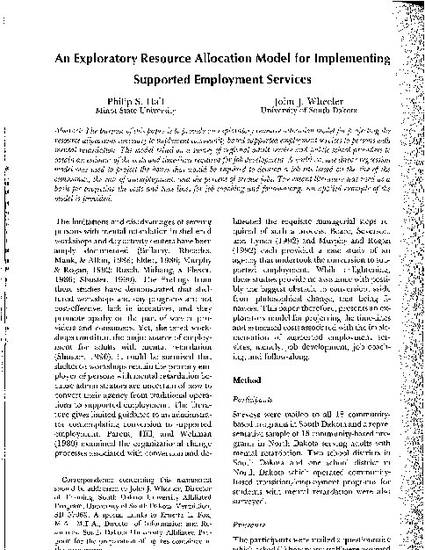
Article
An Exploratory Resource Allocation Model for Implementing Supported Employment Services
Education and Training in Mental Retardation
(1993)
Abstract
The purpose of this paper is to provide an exploratory resource allocation model for projecting the resource allocations necessary to implement community-based supported employment services to persons with mental retardation. The model relied on a survey of regional adult service and public school providers to obtain an estimate of the costs and time-lines required for job development. A multi-variate linear regression model was used to project the hours that would be required to develop a job site based on the size of the community, the rate of unemployment, and the percent of service jobs. The extant literature was used as a basis for projecting the costs and time-lines for job coaching and follow-along. An applied example of the model is provided.
Keywords
- intellectual disability,
- employment,
- coaching,
- unemployment,
- sumer,
- disabilities,
- Job development,
- special education,
- mental training,
- mathematical dependent variables
Disciplines
Publication Date
December, 1993
Publisher Statement
© Division on Autism and Developmental Disabilities. This document was published with permission from the publisher. It was originally published in the Education and Training in Mental Retardation.
Citation Information
Philip S. Hall and John J. Wheeler. "An Exploratory Resource Allocation Model for Implementing Supported Employment Services" Education and Training in Mental Retardation Vol. 28 Iss. 4 (1993) p. 288 - 295 ISSN: 1042-9859 Available at: http://works.bepress.com/john-wheeler/43/
